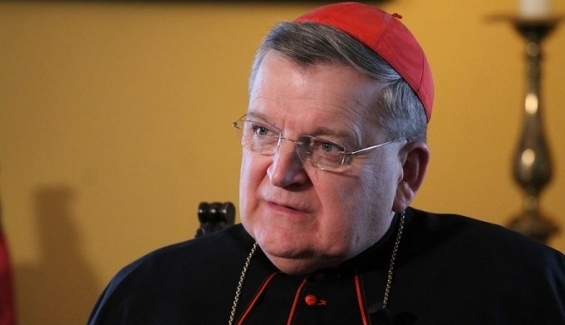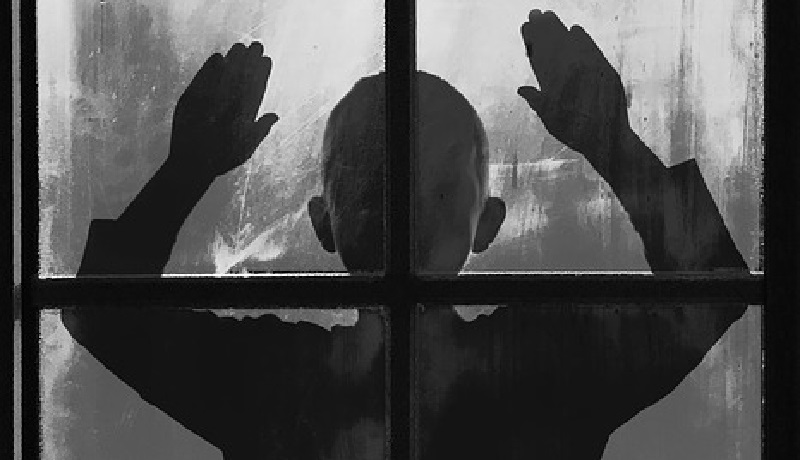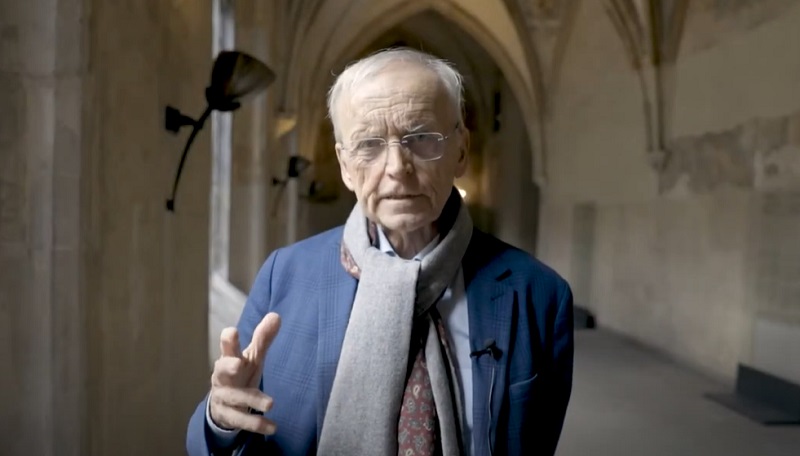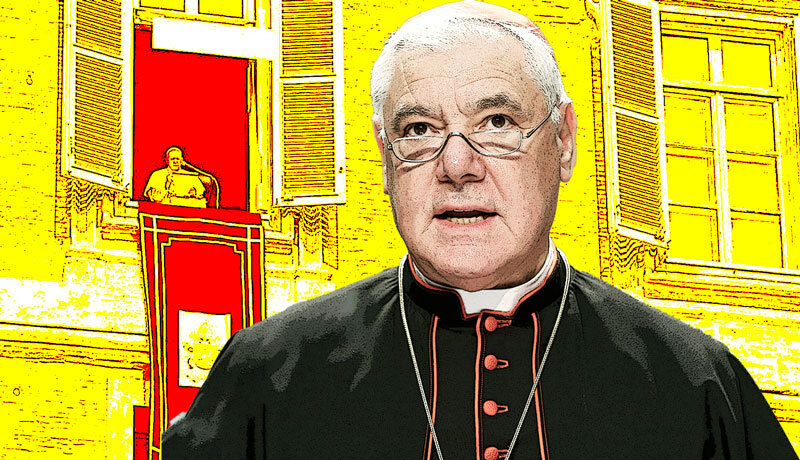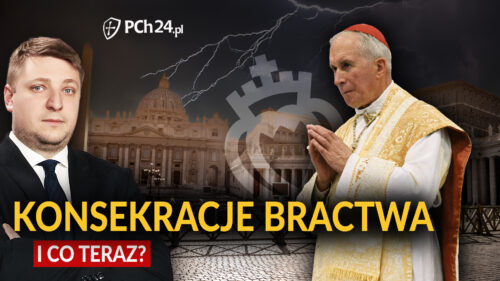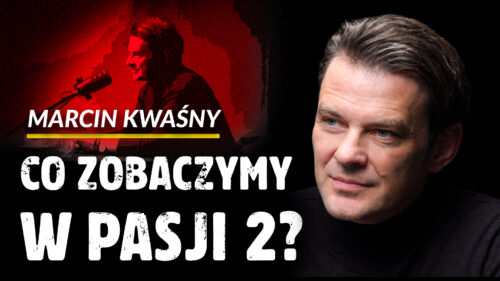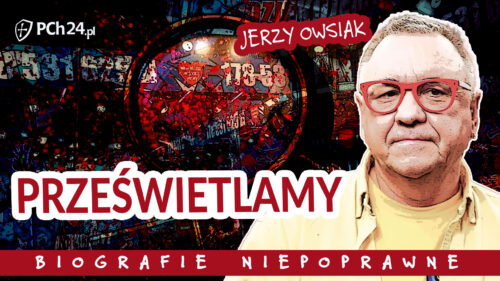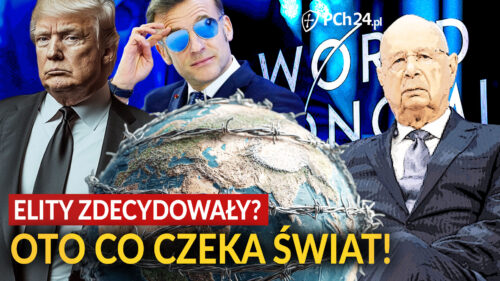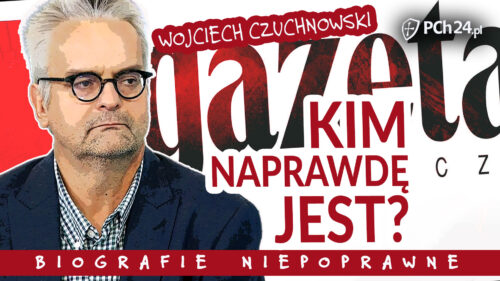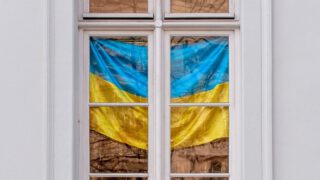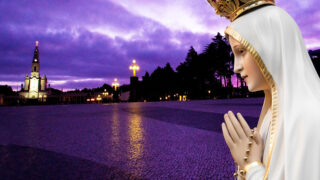On 6th February, Poznań witnessed a rare event: Cardinal Raymond Leo Burke was hosted by Stanisław Gądecki, the archbishop of Poznań. The Cardinal sung the Holy Mass in the metropolitan cathedral dedicated to saints Peter and Paul, after which a promotion of Polish translation of his book “Divine Love Made Flesh” took place.
It is Cardinal Burke’s first visit to Poland. Starting in Poznań, His Eminence is also going to visit Kalisz, Częstochowa and Cracow, where the next promotion of his book will be held. Published in 2012 “Divine Love Made Flesh” was recognised as an important testimony aimed at restoration of the proper reverence for the Most Blessed Sacrament of Altair and the liturgy of the Holy Mass. As pointed out by the author himself, the book was “inspired by continuity of the Magisterium on the Sacred Liturgy” and thought of as a guide which “helps the reader to appreciate the good, the truth and the beauty of the sacred liturgy as an action of Christ’s glory among us as being a Union of Heaven and Earth”. The book translated by Izabella Parowicz was issued by AA Publishing House in cooperation with Dębogóra Publishing House. Media patronage over the publication was provided by the magazine Polonia Christiana and the Catholic news service PCh24.pl.
Wesprzyj nas już teraz!
The Holy Mass in the metropolitan cathedral in Poznań’s was concelebrated by Card. Burke with archbishop Gądecki, rev. Ireneusz Szwarc parocus of the cathedral and monsignor Jan Stanisławski parocus emeritius of the cathedral. In the homily, delivered partially in English and read by an interpreter, the Lord Cardinal spoke about both the history of Poland and the history of the cathedral church. Starting with the baptism of Mieszko I, the first Christian ruler of Poland, he underlined the gravity of starting his visit in the first cathedral built on Polish land. He appreciated the historical role of Poland in the history of the Catholic Church, especially how from an object of evangelisation it have become a subject of evangelisation for other nations: “I thank the Lord for the evangelisation of Poland and for all that Poland has done and does for the evangelisation both within the Church and in the world.” This was a notable reference to the active participation of Polish bishops at the last synod on the family.
The meeting dedicated to the Polish edition of the Cardinal’s book was held at the Faculty of Sacred Theology of the Adam Mickiewicz University in Poznań. A great number of people gathered in the hall lacked room, so the most persistent listened to the lecture and the discussion from the foyer. One could rejoice due to large presence of clergy, both diocesan and religious, and the youth. The latter showed with their very presence that they are truly concerned about the proper reverence for the Most Blessed Sacrament.
The meeting was chaired by rev. Jarosław Powąska, one of the organisers of the Cardinal’s visit to Poland. Guests were welcomed by archbishop Gądecki, who expressed his joy from hosting such a noble guest and shared his hope for the spiritual benefit for the participants of the meeting. He also pointed out how important the opportunity to get familiar with “Divine Love Made Flesh” is for Polish readers. Next person to speak was Bogusław Kiernicki, CEO of Dębogóra Publishing House, who underlined the Cardinal’s devotion to the authentic Divine worship, to beauty of the liturgy and to the reverence towards our Eucharistic Lord.
The most important part of the meeting was a lecture given by the guest, interpreted by Miss Parowicz, the author of the Polish translation. In a beautiful and uttermost simple manner, the Lord Cardinal described his personal experiences of growing up and confirming in faith by the Most Blessed Sacrament of the Altair, recognising our Eucharistic Lord as the most important and beatissimus part of his life. In the retrospective, he described how, from his childhood marked with altair service, to education in the minor and major seminary and forthcoming studies in Rome, his reverence towards the Most Blessed Sacrament of Altair grew. He referred to his homily about the significance of Poland in history, speaking of how he personally and the Church in his homeland have benefited from the faith of Polish people residing there. His book roots from these personal experiences. As he claimed, the direct reason for writing the book was a desire to write a comment to the last encyclical of Pope Saint John Paul II Ecclesia de Eucharistia, published in 2003, and to the post-synodal pontifical adhortation of Pope Benedict XVI Sacramentum Caritatis released in 2007.
Cardinal Burke must have mentioned difficult experiences of the second Vatican Council and the introduction of the new order of the Mass, which used to be part of his youth. The interior of churches was reorganised, the most beautiful things removed, in particular the high altairs, Georgian chant and sacred polyphony were abandoned for the presence of colloquial and of a poor quality and often banal contemporary music, Latin was barely heard, and English was not sublime in the liturgical texts. This topic was also a part of a discussion, when he spoke of a prominent role of Cardinal Wyszyński (the Primate of Poland those days), whose firm affiliation towards the orthodoxia did not allow for the worst kind of rupture with the Tradition. That results in different experiences of the Church in Western Europe and USA, which may be hard to understand in Poland.
The great joy for the faithful gathered was the opportunity to ask questions. They concerned various topics: the above-mentioned problem of coexistence of two forms of the same Roman rite of the Holy Mass, issues regarding the Priestly Fraternity of Pious X or the concerns about the Mandatum on the forthcoming Maundy Thursday. Addressing the first of the mentioned issues, the Lord Cardinal pointed out that both forms of the Roman rite should mutually enrich each other, which means that one cannot forget about ritual matters that are essential for the external expression of the reverence for our Lord.
At the end of the meeting, Mr Thomas J. McKenna from Catholic Action for Faith and Family, the US editor of the Lord Cardinal’s book, spoke. He described the great benefit, which he experienced while working with the Cardinal on his books. He emphasised that “Divine Love Made Flesh” had already been translated into a few foreign languages, and works on other translations have been in progress. “This book is the true testimony of the heavenly inspired Love. It is the testimony of the true concern of the care and reverence on the Eucharistic Lord and of the love to Christ. It unites Church theology with the pastoral practice and spiritual life”, he underlined.
The last, and for some the most expected, part of the meeting was a possibility of a personal encounter with the Lord Cardinal, asking for a blessing or signing his book, a brief conversation or taking a photo. Despite extending the time limit significantly, the Lord Cardinal with a genuine smile straightforwardly spoke to anyone who approached him. The most persistent people waited for more then an hour, yet the Cardinal had some kind words for everyone and was willing to offer his prayer.
Maria Gierszewska

